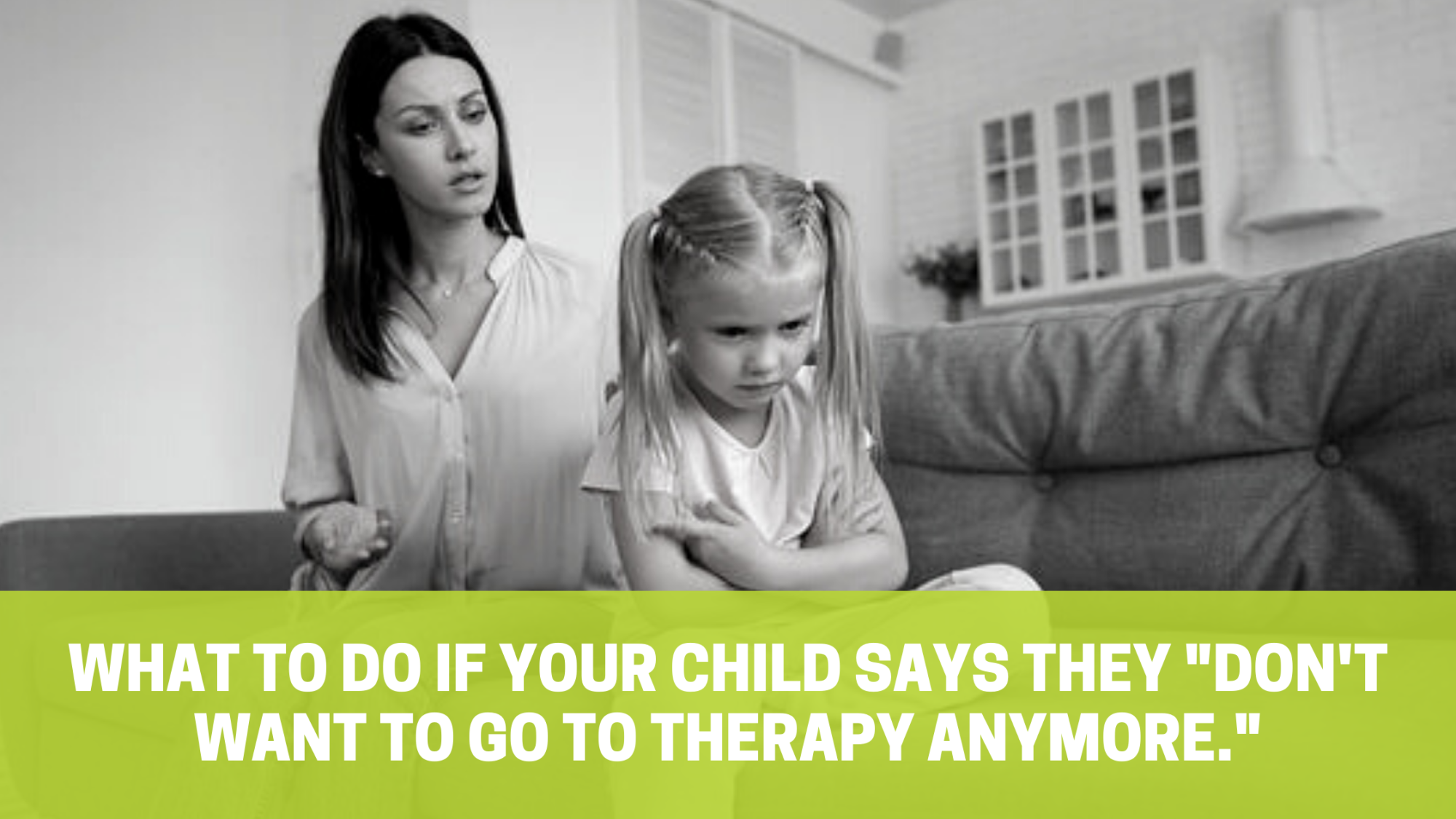Children will experience a range of different emotions throughout the therapeutic process. It’s important to remember that therapy is not supposed to be easy. Suppose your child begins to resist therapy, telling you that they don’t want to come to their sessions anymore. In that case, it is essential to validate these emotions and thank them for telling you how they’re feeling. Your child may be experiencing a rush of emotions and needs to hear that this is normal and maybe even expected. As therapy begins to get deeper and closer to the root of problems, emotions will arise. It is important to leave room to process these complicated feelings.
If your child says they “don’t want to come to therapy anymore.”
1. Encourage your child to explore these emotions further. Ask them questions like- Did you always feel this way about therapy? Was there a time when you liked going?
2. Schedule a parent session with your child’s therapist. Let your therapist know that your child is resisting sessions. They will work with you to explore potential reasons for this resistance and set a clear structure moving forward.
3. Revisit your therapeutic goals and share them with your child. Kids must know why they are coming to therapy and what goals they are working towards.
4. Validate, validate, validate. Say things like, “Of course you don’t want to go to therapy anymore! Therapy can be so hard sometimes. It must bring up big feelings talking with your therapist!”
The therapeutic process looks unique for everyone, especially for kids. Your therapist is there to support your family through this journey, so when your child starts to resist therapy, it is crucial to bring this up in your parent sessions. Often, what makes us most uncomfortable is the most significant opportunity for growth. This goes for our kids in therapy too!

